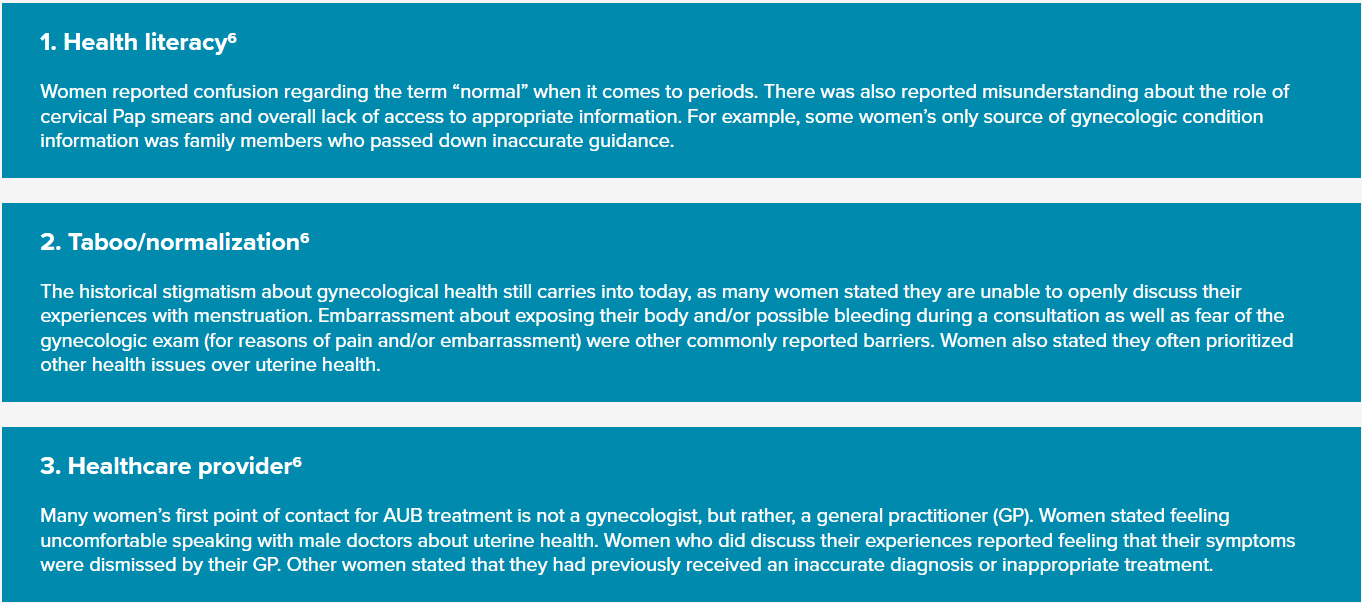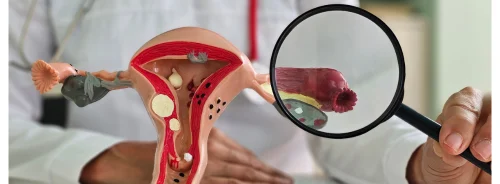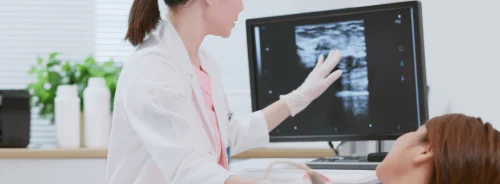We know the tremendous impact AUB can have on women’s lives. Pain, tiredness, lack of energy, long menstrual cycles with almost hourly changing of tampons and pads, the overall feeling that life must be planned around periods—these are just some of the ways AUB may affect daily life.1
For some women who suffer, AUB may be a sign of an underlying health problem. Blood loss from AUB can lead to iron-deficiency anemia, which can cause shortness of breath and increase the risk of heart problems.2 AUB is also the most common symptom of endometrial cancer.3
So many women impacted…but so few are seeking help
AUB affects more than 10 million American women each year.1 However, it seems likely that the real number is much higher because many women experience AUB symptoms but don’t seek out care. This issue is seen worldwide. A survey conducted in Europe found that, of 4,506 premenopausal women, 27.2% experienced AUB, and 46% of these women had never sought medical consultation.4 A study conducted in Japan surveyed almost 20,000 women, and while 74% of women reported suffering from menstrual symptoms including pain and heavy bleeding that interfered with their daily lives, only 20% sought medical help.5
Why aren’t women seeking treatment for AUB symptoms?
Factors that impede access to care
A 2020 review of qualitative research aimed to study the barriers for women seeking care for AUB.6 The review developed three themes that emerged after looking at 12 studies6:

How to improve access to AUB care
Not unexpectedly, knocking down the barriers to care is not a straightforward task. Social and cultural factors dictate that approaches must be carried out on a smaller, local level.
Still, some general findings seem to apply globally, including working harder to destigmatize uterine health and improving education and training for GPs on matters of women’s health. More frequent and open discussion about menstrual cycles is needed so women and any doctor they may visit know what is normal versus abnormal. Awareness campaigns conducted at the local or national levels could help in this respect.
As a healthcare provider, you can proactively ask specific questions about patients’ menstrual bleeding so you can help determine if they are in fact experiencing AUB (or other uterine health issues).
It’s important to note that many women may not mention their symptoms because they believe there’s no point. They believe that heavy bleeding is something they just have to deal with. But we know better—treatments are available! By getting patients to open up about their experiences, you can help them find the relief they deserve.
Click here for the latest Women's Health news
Source: Hologic







